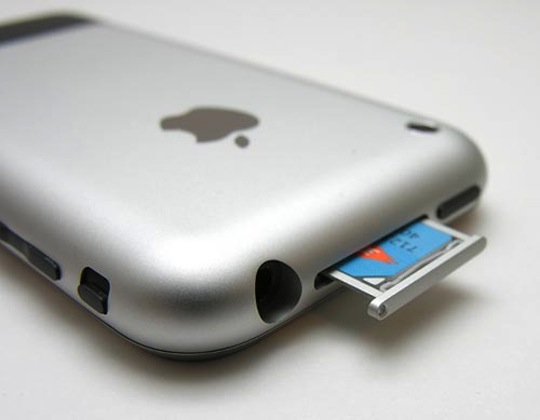 Have you ever looked at a SIM card and asked yourself why the SIM chip is so tiny compared to the entire SIM card? It sounds like Apple’s asked themselves that question recently as well. According to Orange executives, Apple’s baking up a new plan that includes a standard to make SIM cards smaller — smaller than the Micro SIM in the iPhone 4 and iPad, even.
Have you ever looked at a SIM card and asked yourself why the SIM chip is so tiny compared to the entire SIM card? It sounds like Apple’s asked themselves that question recently as well. According to Orange executives, Apple’s baking up a new plan that includes a standard to make SIM cards smaller — smaller than the Micro SIM in the iPhone 4 and iPad, even.
Like all things standard, Reuters believes the path to ratification of the new SIM standard is still quite a ways off at this point. It’s probably at least a full revision away.
Wait, what happened to SIM-free phones?
But, here’s where things get pretty curious. Remember a couple of months ago when Apple was rumored to be working on a revolutionary new chip that would let companies ship phones without SIM cards, and instead have the chip flashed by carriers through something like iTunes? The Gemalto-Apple chip was going to let cusomters buy and activate iPhones directly from Apple’s stores through iTunes. The chip was going to eliminate the need to call or activate your phone with your carrier:
The ROM area contains data provided by Gemalto with everything related to IT and network security, except for the carrier-related information. The flash component will receive the carrier related data via a local connection which could be the PC or a dedicated device, so it can be activated on the network. Gemalto will provide the back-end infrastructure that allows service and number provisioning on the carrier network
So that’s how the chip was going to work, but it didn’t end there either. Apple was also working on a system that would remove power from the carriers, and place the power back into the hands of the people. The new system, found in a patent, would let users tender bids for their contracts:
In some situations, bids are received from multiple network operators for rates at which communication services using each network operator can be obtained. Preferences among the network operators are identified using the received bids, and the preferences are used to select the network operator for the mobile device to use in conducting communications
What happened to all of this stuff? We were given hope for the future! In all honesty, it was a pipe dream to begin with. Carriers would rather stop selling the iPhone than let companies like Apple dictate how their business should work in the future.
I guess, for now, we’re left with a smaller SIM card. At least that’s something that Apple could easily implement.
Article Via MacStories






